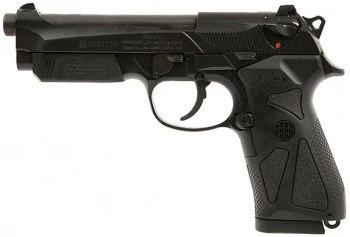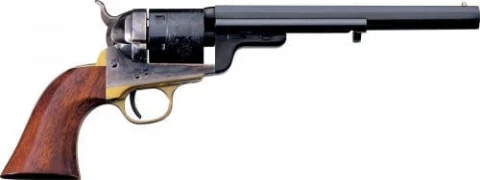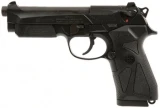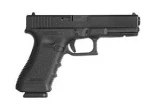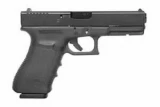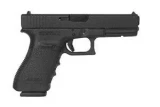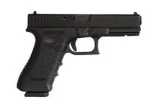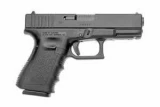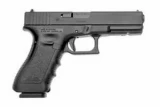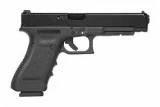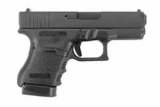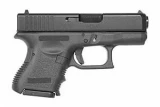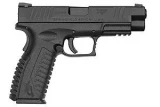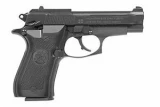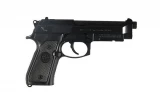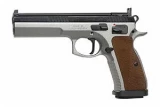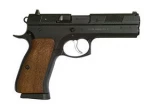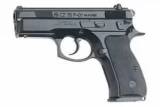Beretta 90-TWO vs Uberti 1851 Navy Conversion 341359
Put handguns head to head to compare caliber and more.
|
$409.85
|
vs |
$680.59
|
| Handguns | Beretta 90-TWO | Uberti 1851 Navy Conversion 341359 |
|---|---|---|
| Summary | ||
| Rating | ||
| Rank | ||
| Action | Double Action | |
| Caliber | 9x19mm Parabellum | .38 Special |
| Capacity | 17+1 | 6 |
| Sights | Night Sights | |
| Barrel Length | 4.9" | 5.5" |
| Finish | Black | |
| Gun Type | Pistol | Revolver |
| Details | ||
| Brand | Beretta | |
| Reviews | See 20 Reviews | N/A |
| Prices | ||
| MSRP | $413.85 | $665.59 |
| Used Price | $289.70 | $465.91 |
| Sale Price | $372.47 | $599.03 |
Handguns Descriptions
Beretta 90-TWO
The newly designed frame of 90two pistol ensures trouble-free insertion and holster extraction, thanks to its rounded and truly snag-free surfaces. Inside the frame, near the disassembly lever, a metallic recoil buffer reduces the impact of the slide assembly against the frame during the shooting cycle. By redistributing the stresses, the recoil buffer increases the service life of the firearm. Trigger guard is also rounded to ensure, when firing with two hands, the correct positioning of the supporting hand.
Uberti 1851 Navy Conversion 341359
Description In 1872 Colt entered the market for metallic cartridge revolvers by introducing their factory-installed percussion-to-cartridge open top conversion of the 1861 Navy cap-and-ball revolver, followed quickly by the Richards-Mason conversion of the 1860 Army the following year. Based on a patent held by Colt employees Charles Richards and William Mason, the old cap and ball cylinders were cut down at the back to allow the installation of a conversion ring to accept metallic cartridges. In addition to civilian orders, Colt received an Army contract in 1871 to convert 1,000 Model 1860 Army percussion revolvers to use the .44-caliber centerfire cartridge being manufactured at the Frankford Arsenal. Eventually a total of 9,000 Open Tops and 2,100 Richards-Mason conversions were produced. Ultimately thousands of the Colt and Remington converted percussion revolvers found their way into the hands of sheriffs, outlaws, gunfighters, soldiers, cowboys, miners and ranchers throughout the Old West. The conversion revolvers were also fitted with ejector rods, a necessity for removing fired casings from the cylinder. br> The 1860 Conversion revolver frames had to be fitted with spacers in order to function properly and safely with the shortened cartridge conversion cylinders. The frames on Ubertis conversion revolvers are retro-fitted with loading gates to accommodate cartridges, exactly like the originals.

